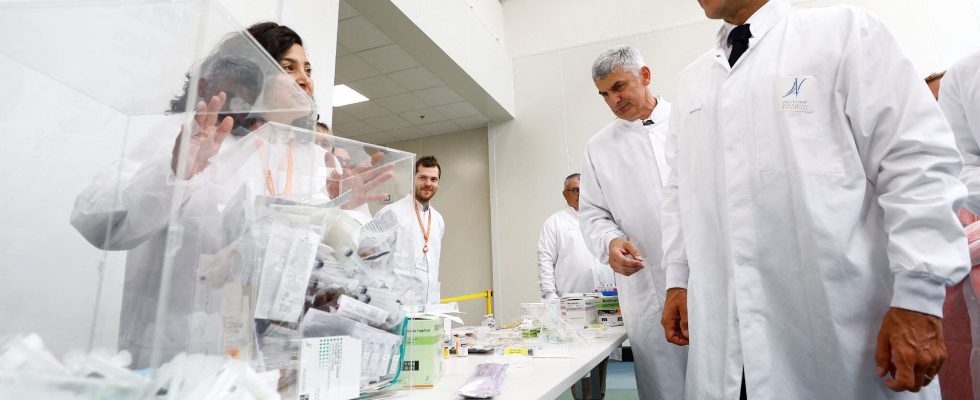While Emmanuel Macron announced Thursday, December 7, the overhaul of the main research institutions to make them more competitive and avoid administrative dead ends, Camille Parmesan, a leading specialist in ecology awarded a Nobel in 2007 for his work with the IPCC, looks back on his experience of French science. She moved to France in 2018 at a time when Donald Trump was taking a climate-sceptical turn in the United States, her native country. If our country has offered it unique infrastructures in the world, it regrets the proliferation of absurd procedures.
L’Express: What is the outcome of these five years spent in France?
Camille Parmesan: I am very satisfied with Make our planet great again, the program thanks to which I was able to come to France. This is an incredible opportunity, which has enabled numerous excellent scientific works. You know, everyone I’ve talked to who’s benefited from it has told me they want to stay. You will like this: in reality, imagine that the equivalent German initiative is much less successful. We were very supported in our move to France, with French lessons and numerous adjustments. I also obtained a permanent position at the CNRS. So I’m on course to stay, at least until retirement.
But there are still two downsides: my disastrous level in French, which is especially a problem in my personal life, in my medical appointments and my meetings. And the bureaucracy. I had heard about administrative problems during my career, during my research in the Alps and the Pyrenees in particular. But I never would have imagined that the organization and protocols in force would be so restrictive! It’s incredibly frustrating, and most of the problems seem completely unwarranted to me.
What difficulties do you encounter on a daily basis?
The CNRS has implemented new software to enter our missions since this summer. Enough to save time and paper, we said to ourselves. Except it doesn’t work. In the United States, when you implement a technical solution, it works. I’m not saying they’re better, but I have the impression that here, we deploy first, and then adjust. That’s what I call a beta, and that’s no way to do it. Sometimes, internal email administrators change a setting, and my emails no longer go through. How come I spend half my time cut off from this basic tool?
Many French scientists speak of distrust. Do you share this feeling?
This is the other aspect of administrative difficulties: control procedures. Most of them aim to verify that public money is not being used haphazardly. But my God, here we check, we double check, we triple check, even. I have to obtain authorization from five people to be able to go to Paris to see… my hierarchy, that is to say, the CNRS. It’s ridiculous, and it’s not only irritating, it’s a real hindrance to our work, because we’re stuck waiting for the various validations.
I have worked in the United States and the United Kingdom. There too, they check, they audition. But the procedure is simple: you have a budget, you incur the expenses and an accountant checks after the fact, and only bothers you if he doesn’t understand an expense. We explain, and everything is fine. Researchers are not dishonest. There are some, like everywhere, but most only want to do their job, to the best of our ability.
How do you judge the level of French ecological science?
The level of expertise and technology here is tremendous. I have carried out numerous missions in different countries around the world. I have never seen facilities comparable to those we have at the Moulis Experimental and Theoretical Ecology Station, the CNRS research center, which I direct, and which is located in Ariège. France is lucky to have such remarkable scientific infrastructures, at least in the field of ecology.
You have met Emmanuel Macron on several occasions. What did you tell him?
I talked to him about ecology, of course. Biodiversity, to be exact. We had dinner together on the occasion of the opening of the Biodiversity Office in Chamonix in 2020. At the time, little had been done on this aspect, often relegated to the background, even though ecosystems play an important role. essential role, especially in climate matters. It was a subject that the president did not master, at least less than global warming, he said so himself.
I was impressed to see him understand and absorb what was said to him, and reproduce it with such accuracy. I think we must continue to make efforts so that the different actors in the climate transition meet and talk to each other. It is only by putting farmers, hunters and nature defense associations around the same table that we can move forward. Texas, where I come from, did it well before France, and it resulted in very good compromises.
.
